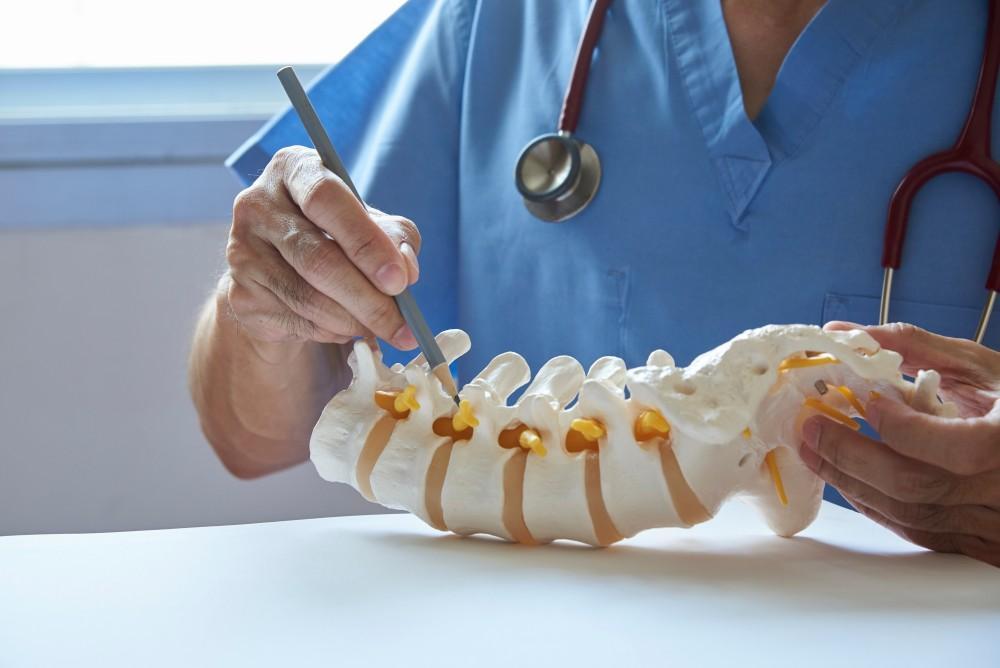
4 Telltale Symptoms of Sciatica

Your sciatic nerve is the longest nerve in your body, starting in the lumbar spine (lower back) and traveling through your buttocks and down the outside of each leg. When it becomes “pinched,” say from an injury, a herniated disc, or spinal stenosis, you feel pain, numbness, and/or tingling radiating from the spine to points anywhere along the nerve’s length. The pain can be constant or intermittent, and it can feel mild to so severe you can’t bear weight on the leg. All together, the pain and symptoms are known as sciatica.
At Vertrae®, with offices conveniently located in Dayton and Springfield, Ohio, board-certified neurosurgeon Dr. Kamal R. Woods and his team know how painful and annoying sciatica can be. That’s why they offer patient-centered care using state-of-the-art technology to help you find relief. Here’s what they want you to know about the four telltale symptoms of sciatica, as well as what treatments can help.
Contributing causes of sciatica
While we’ve mentioned several possibilities for how sciatica develops, there are a few additional causes that bear stating.
Getting older
As you age, your entire body starts to deteriorate, and that includes the structures in your spine. Three of the most common causes of a pinched sciatic nerve are more prevalent as you get older:
- Herniated discs: the cushions between the vertebrae dry out and break; the interior gel flows out, compressing the nerve.
- Bone spurs: growths on the vertebrae that can impinge on the sciatic nerve.
- Arthritis: wear-and-tear degrades the facet joints on either side of your spinal column, impinging on the nerve.
Dr. Woods uses a minimally invasive procedure called a microdiscectomy to treat herniated discs. In it, he removes the offending part of the disc, or the entire disc, if necessary.
Being overweight or obese
Excess weight takes a toll on your entire body, including your spine. A 2014 study showed an association between being overweight or obese and developing sciatica, for both women and men. Regular exercise and a healthy diet can help you shed the pounds and decrease your pain — and boosts your cardiovascular and overall health, too!
Occupational hazards
If you lift heavy objects or routinely bend and twist while working, you put additional stress on your spine, increasing your risk for developing sciatica. Use appropriate back support at work, and remember to lift from your legs, not from your back.
4 telltale symptoms of sciatica
Though the pain you experience from sciatica might or might not be severe enough to get treatment, if you learn to recognize the symptoms as those of sciatica, you’ll know when to seek out medical help. The four telltale symptoms include:
- Constant or intermittent pain
- Muscle weakness (along the nerve’s path)
- Tingling
- Numbness
Since you have two sciatic nerves, one of which exits from the right side of the spine and the other from the left, typically you only have one nerve pinched at a time. That means you experience symptoms only on one side of the body. Although the condition is highly treatable, if you don’t get medical help, it can lead to permanent nerve damage. And in severe cases, you may experience the loss of bladder or bowel function.
Treating sciatica
Dr. Woods always starts with conservative treatments. These may include:
- Physical therapy
- Oral medications
- Steroid injections
Medications and injections reduce your pain, while physical therapy helps to strengthen your back and core muscles and improve your range of motion.
If you’re experiencing any of the signs of sciatica, it’s time to come into Vertrae® for a consultation with Dr. Woods. Give the office a call at 844-255-2225 (both locations), or book online with us today. We can help.
You Might Also Enjoy...


4 Benefits of Outpatient Spine Surgery

Am I a Candidate for Kyphoplasty?

Pulled Muscle vs. Pinched Nerve: What's the Difference?

4 Subtle Signs of Sciatica

